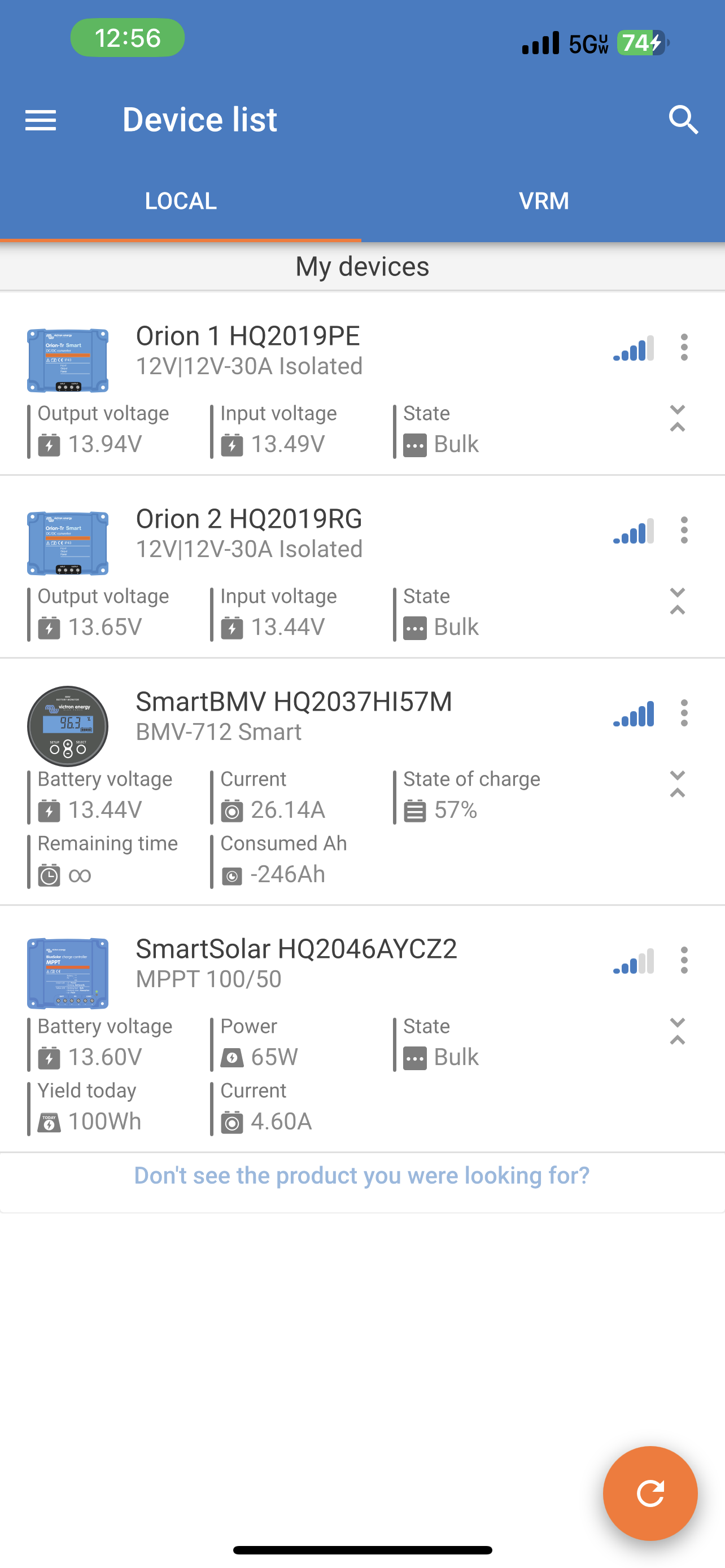Hi guys, I have two Orion DC-DC chargers (12/12-30) in my camper van (2020 RAM ProMaster) than run in parallel using 6AWG. They’re connected to the van’s stater battery and to a Lynx distributor that connects to the house batteries (which are 3x 190ah LiFePO4 batteries connected in parallel). As you can see in the images, I’m only getting ~30 amps max between the two Orion units when battery SOC is quite low. I’ve never seen them pull any higher, no where near 60 amps. Firmware on them is the latest version v1.13.
Any ideas on what the issue could be? I really need to get closer to the 60 amps they’re rated for (being 30 amps each).

